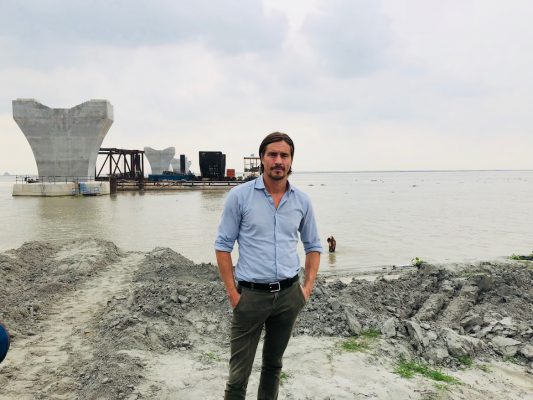THE FUND
The fund rose 4.2% in January, compared to MSCI FMxGCC Net TR (SEK), which rose 6.9%. The fund’s underperformance was primarily due to our underweight in Argentina (3% negative relative contribution) as Argentina rose 24% during the month. Our stock picks in Vietnam (1.5% negative relative contribution) also had a negative impact on the relative return because of market interest, which still is centred around the largest index weights. Furthermore, our lack of holdings in Kenya had a negative contribution of 1%. Positive contributions accrued from Pakistan (1.7% relative contribution), which had a significant rise in January. Our Turkish position MLP Care rose just below 30% during the month, giving a positive contribution of 0.8%. Finally, the absence of Romanian holdings had a positive contribution of 0.5% as the stock market continued to decline due to the uncertainty of a possible new tax legislation. In January, we sold two positions: Pakistani Gul Ahmed Textile which, after a sharp rise, now appears fully valued, and our remaining marginal position in Suez Cement which has been under divestment for some time now. We also reduced our positions in the Egyptian Banks Commercial Bank and Credit Agricole, by virtue of stronger convictions in other markets.
MARKET
MSCI FMxGCC Net TR (SEK) rose 6.9% in January, compared to MSCI FM Net TR (SEK), which rose 6%, MSCI EM Net TR (SEK), which rose 9.9%, and MSCI World Net TR (SEK), which rose 9.3%. January saw a strong recovery in global equity markets following the weak trend from early October to the end of the year 2018. Indications that the US central bank’s interest rate hikes may be over, falling bond yields in the US (but also the rest of the world), falling oil prices (which signal declining inflationary pressures), and reduced concern about an escalated trade war between the US and China meant that investors had the courage to return to the stock market. For emerging and frontier markets, the calm in the foreign exchange markets returned, where several countries’ currencies, after the devaluation wave in 2018, now appear to be cheap vs history. For some of the most troubled markets, such as Pakistan and Sri Lanka, we now see indications of improvement in the future account balance, which should result in less concern about continued devaluation. After a weak year in 2018, the mood tends to be relatively cautious, not to say pessimistic. As an investor, it is important to ignore both excessive optimism and pessimism. It should be remembered that frontier markets have undergone two major rectifications over the past five years, the first caused by the fall of Oil prices in 2014-2016, and the second due to the recent account crises in 2018. As we pointed out in our previous monthly letter, the asset class as a whole has delivered close to zero return over the past five years. Concurrently, the better companies grew and their economies developed. We conclude that emerging and frontier markets can close part of the gap relatively developed equity markets in the coming years.
DISCLAIMER: Capital invested in a fund may either increase or decrease in value and it is not certain that you be able to recover all of your investment. Historical return is no guarantee of future return. The state of the origin of the Fund is Sweden. This document may only be distributed in or from Switzerland to qualified investors within the meaning of Art. 10 Para. 3,3bis and 3ter CISA. The representative in Switzerland is ACOLIN Fund Service AG, Affolternstrasse 56, CH-8050 Zurich, whilst the Paying Agent is Bank Vontobel Ltd, Gotthardstrasse 43, CH-8002 Zurich. The Basic documents of the fund as well as the annual report may be obtained free of charge at the registered office of the Swiss Representative.



